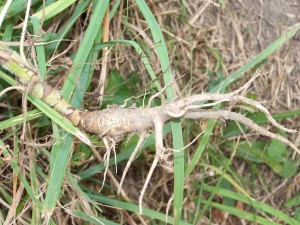Wild Carrot
- Wild carrot is a plant. The parts that grow above the ground and an oil made from the seeds are used to make medicine. Be careful not to confuse wild carrot (which has a white tap root that shouldn’t be eaten) with the common carrot (which has the familiar orange tap root we do eat).
Contents
Uses
- Wild carrot is used for urinary tract problems including kidney stones, bladder problems, water retention, and excess uric acid in the urine; and also for gout, a painful joint problem caused by too much uric acid.
- The seed oil is used for severe diarrhea (dysentery), indigestion, and intestinal gas. Women use it relieve pain in the uterus and to start their menstrual periods.
- Other uses include treatment of heart disease, cancer, kidney problems, and worm infestations. It is also used as a “nerve tonic” and to increase sexual arousal (as an aphrodisiac).
- In foods, wild carrot oil is used to flavor alcoholic and non-alcoholic beverages, frozen dairy desserts, candy, baked goods, gelatins, puddings, meat and meat products, condiments, relishes, and soups.
- In manufacturing, wild carrot seed oil is used as a fragrance in soaps, detergents, creams, lotions, and perfumes.
Benefits
- Wild carrot contains chemicals that might have effects on blood vessels, muscles, and the heart, but it is not known how wild carrot might work for medicinal uses.
Cautions
- Wild carrot seed oil seems to be safe when taken by mouth for most adults in the amounts used in medicines. There isn’t enough information to know whether the above-ground parts of wild carrot are safe.
- High doses of wild carrot oil can cause kidney damage and nerve problems. Wild carrot can cause skin rash and increase the risk of sunburn when in the sun.
- Pregnancy and breast-feeding: It’s UNSAFE to take wild carrot if you are pregnant. The seeds, oil, and parts that grow above the ground can make the uterus contract and might start menstruation. These effects could cause a miscarriage.
- It’s also a good idea to avoid wild carrot if you are breast-feeding. The seed oil can act like the hormone estrogen. Taking the seeds and parts that grow above the ground is risky because no one really knows how safe they are to use during breast-feeding.
- Allergy to celery and related plants: Wild carrot may cause an allergic reaction in people who are allergic to birch, mugwort, spices, celery, and related plants. This has been called the “celery-carrot-mugwort-spice syndrome.”
- Kidney problems: Wild carrot might make kidney problems worse, because it irritates the kidneys. Avoid use.
- Surgery: Wild carrot might affect blood pressure. Some physicians worry that it might interfere with blood pressure control during and after surgery. Stop using wild carrot at least 2 weeks before a scheduled procedure.
- Treatment with UV light: Wild carrot increases the risk of getting a sunburn after exposure to the sun or to UV light. Don’t take wild carrot if you are being treated with UV light.
Interactions
Moderate Interaction Be cautious with this combination:
- Estrogens interacts with WILD CARROT: Large amounts of wild carrot might have some of the same effects as estrogen. But wild carrot isn’t as strong as estrogen pills. Taking wild carrot along with estrogen pills might decrease the effects of estrogen pills.
- Lithium interacts with WILD CARROT: Wild carrot might have an effect like a water pill or “diuretic.” Taking wild carrot might decrease how well the body gets rid of lithium. This could increase how much lithium is in the body and result in serious side effects. Talk with your healthcare provider before using this product if you are taking lithium. Your lithium dose might need to be changed.
- Medications for high blood pressure (Antihypertensive drugs) interacts with WILD CARROT: Large amounts of wild carrot seem to increase blood pressure. By increasing blood pressure wild carrot might decrease the effectiveness of medications for high blood pressure.
- Some medications for high blood pressure include captopril (Capoten), enalapril (Vasotec), losartan (Cozaar), valsartan (Diovan), diltiazem (Cardizem), amlodipine (Norvasc), hydrochlorothiazide (HydroDiuril), furosemide (Lasix), and many others.
- Medications that increase sensitivity to sunlight (Photosensitizing drugs) interacts with WILD CARROT: Some medications can increase sensitivity to sunlight. Wild carrot might also increase your sensitivity to sunlight. Taking wild carrot along with medications that increase sensitivity to sunlight could increase the chances of sunburn, blistering or rashes on areas of skin exposed to sunlight. Be sure to wear sunblock and protective clothing when spending time in the sun.
- Some drugs that cause photosensitivity include amitriptyline (Elavil), Ciprofloxacin (Cipro), norfloxacin (Noroxin), lomefloxacin (Maxaquin), ofloxacin (Floxin), levofloxacin (Levaquin), sparfloxacin (Zagam), gatifloxacin (Tequin), moxifloxacin (Avelox), trimethoprim/sulfamethoxazole (Septra), tetracycline, methoxsalen (8-methoxypsoralen, 8-MOP, Oxsoralen), and Trioxsalen (Trisoralen).
Other Names
Beesnest Plant, Bird’s Nest Root, Carotte Commune, Carotte Sauvage, Dauce Carotte, Daucus, Daucus carota, Garijara, Nan He Shi, Nid d’Oiseau, Queen Anne’s Lace, Shikha-Mula, Zanahoria Silvestre.
References
Source: WebMD, “Wild Carrot”,www.webmd.com/vitamins-supplements/

